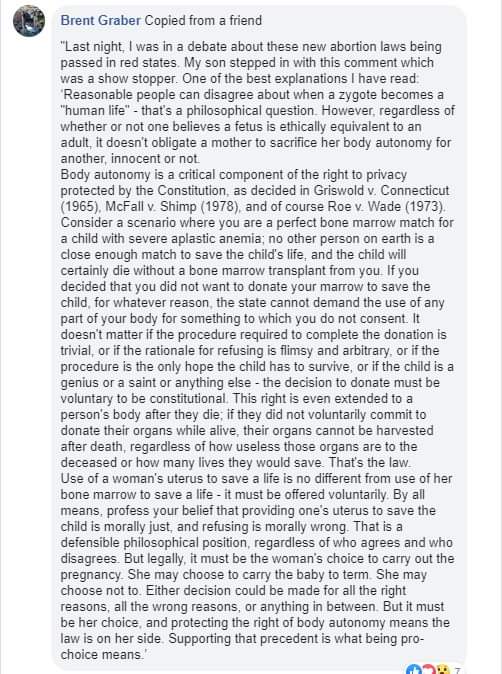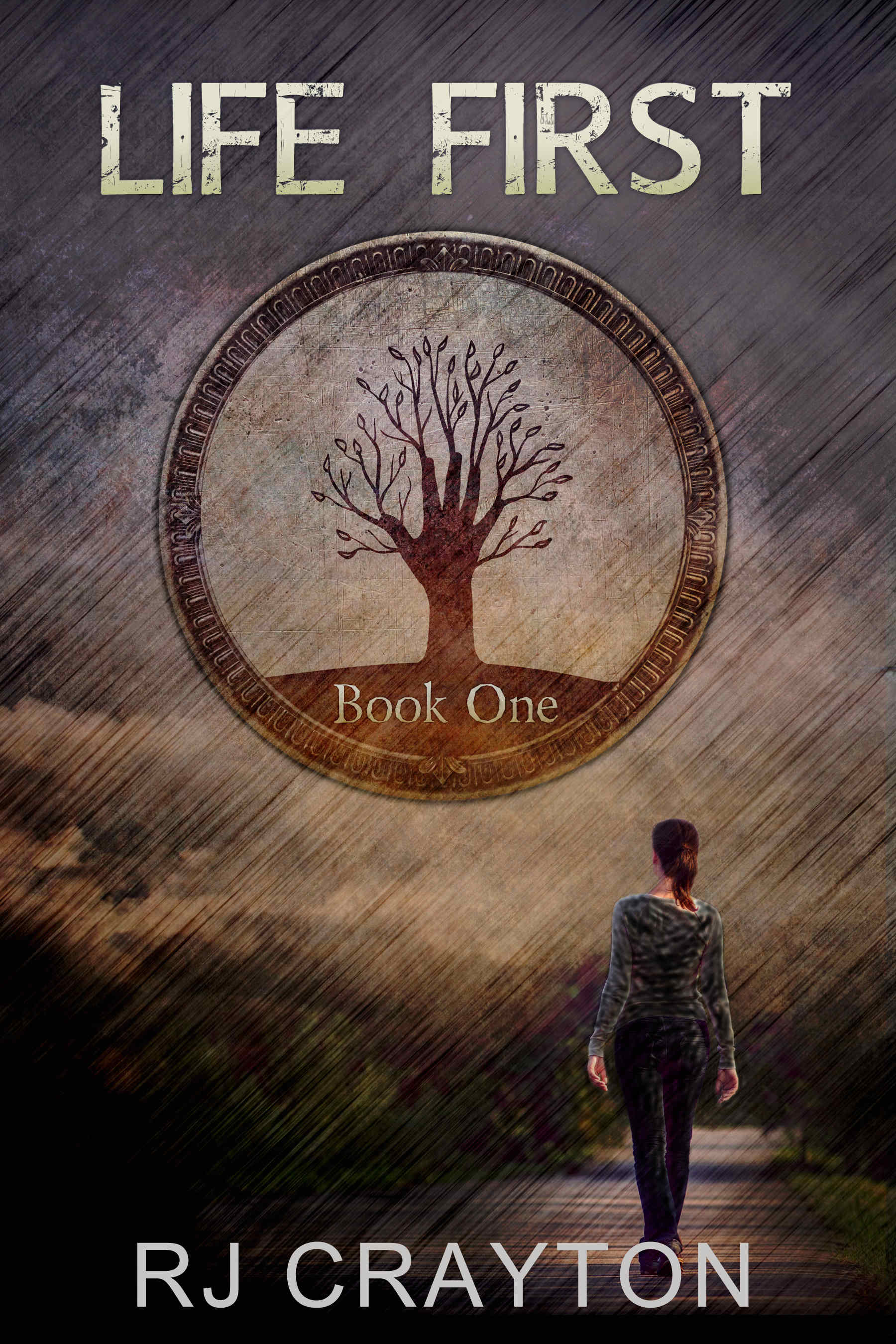
When I wrote Life First, my thoughts on the topic really emerged from ideas around bodily rights. Just who does our body belong to, and are we ever required to sacrifice our body to help someone else?
I think in societies, people make choices all the time to risk life and limb to save others. That’s a good things. Societies are inherently social. We have the desire to help one another. It’s our most basic instinct. Yet desire is different from obligation. It’s different from a requirement, and so as I thought about autonomy in general, it came to me both in the instance of pregnancy–where you have two lives that inexorably linked because one–for an extended period of time–needs the other to survive.
I came across this posting on Facebook the other day. A friend of mine had posted it on her page, and I paused a moment when I saw it because the author was thinking along the same lines as I had been thinking. That our bodies are our own. And that we shouldn’t be required to sacrifice any part of our body to save someone else. If we presume that a fetus is a person at conception, then we must treat it like any other person. There is no other person who can come demand us fork over our body to ensure they survive. There is no stranger who can say, you must eat extra calories each day for six months or I will die, and have a court that would say, yes, you do that.
The interesting thing that people will get up in arms about when you present a person with an argument like this is, they often times will say, “Hey, a few extra calories aren’t harmful. The person should do it.” And I would agree that a person might want to agree to doing that. I mean, if that will save another person’s life. Absolutely try. But, it’s not a question of should. It’s a question of must. And I think we have to decide in favor of free will and choice in that matter.

Of course, that is what Life First is about. The question of whether Kelsey should get to choose autonomy over her body and what happens to her organs, or if she must submit to a surgery she doesn’t want to give her kidney to a man who she doesn’t know.
Interestingly, people will sometimes view the dilemmas as somehow different, but I don’t think they are. Choices over whether to help someone live through the use of your body should always be up to the person. The good news is people are inherently social. Societies wouldn’t exist without a giving spirit, at some level, and lots of people do help.
The interesting thing to me is that this notion pops up from time to time in different places I see online. And I think that’s a good thing. It’s a sign that a major concept in the novel is fundamentally sound. And that knowledge makes me happy.
That quote is an excellent perspective and helps clarify the issue well.
Thanks!